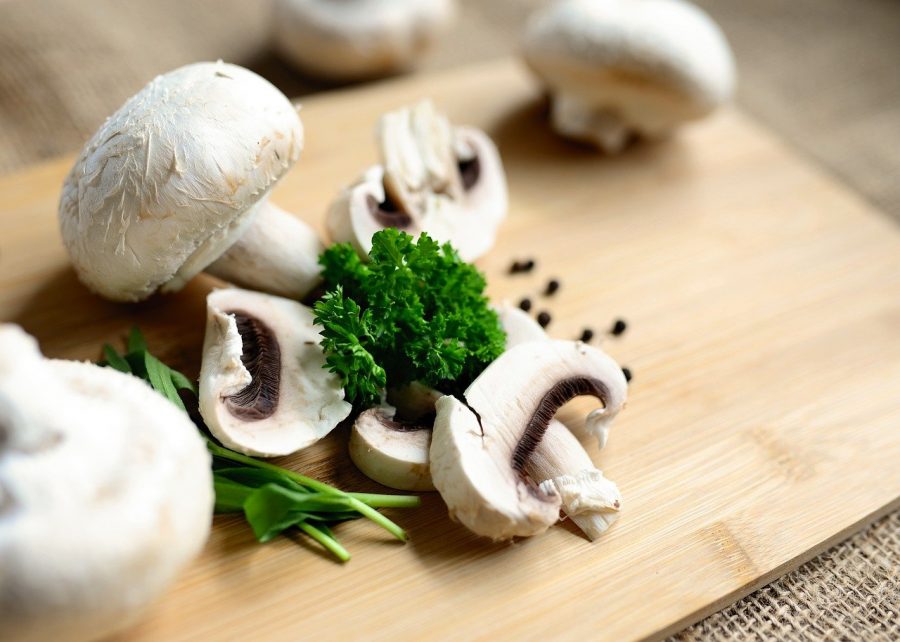Eating Vegan Isn’t Necessarily a Cruelty-Free Alternative
December 14, 2021
Driven by the increasing availability of plant-based choices, perceived health benefits, and especially, reports of cruelty and injustice in the meat industry, veganism has rocketed in many parts of the world in recent years.
However, while criticism of the meat and dairy industries certainly is valid, many of these same problems – labor violations, environmental degradation, animal harm – have also plagued the production of many plant-based foods. In order to pursue this goal to end the needless suffering of animals, humans, and the natural environment, people who choose alternative vegan choices must also make informed choices about their consumption.
A leading problem involved in the production of many vegan-choice crops is the huge consumption of natural resources, like land and water, these crops require. The heavy strain these crops place on the land can crowd out native animal populations and cause greater competition for resources under pressure.
Palm oil, for example, has gained infamy for its role in deforestation and environmental degradation in recent years. Used in upwards of 50% of all packaged products, including vegan options, palm oil plantations have been labeled as leading causes of rainforest destruction in Malaysia and Indonesia, and have been known to cause soil pollution, erosion, and water contamination. In these regions, palm oil groves uproot natural, carbon-rich peat, contributing to climate change as greenhouse gasses are emitted into the atmosphere.
This loss of habitat also drives out animals who call these rainforests home; many of these animals, including Sumatran tigers, Sumatran rhinos, and orangutans, have suffered severe declines in population or endangerment as a result. Palm oil production has also been linked to thousands of land and human rights conflicts, with groups that resist deforestation losing their livelihoods or being forcibly displaced.
Additionally, almonds, another popular vegan food, are extremely thirsty crops, with one California almond requiring the input of 3.2 gallons of water. Even more problematically, the vast majority of the world’s almonds are grown in drought-stricken California, and water diverted to almond farms during this time has depleted local rivers, threatening river species like king salmon and harming the natural ecology of the land. The almond crop also relies on bees for pollination, with California almond trees using nearly 60% of all U.S.-managed honeybees. Although almond growers and beekeepers have long established a mutually beneficial relationship, liberal pesticide use on almond groves have resulted in the “severe” damage of 15 to 25% of beehives used to pollinate almond trees.
The production of numerous popular vegan food options are not free of the same labor controversies that envelope the meat industry, either.
Production of cashews, one of the most well-loved foods by the vegan community for their high fat content and sweet creamy texture, for example, often subjects poor farmers and workers to horrific working conditions for low pay. In India, which produces an estimated 60% of the world’s cashews for consumption, processing workers sit hunched in the same position for most of the day as they continuously hammer at the hard shell of the nuts, which require hand processing due to their unusual arched shapes. As a result, many workers develop chronic joint and back pain, as well as other underlying conditions. Cashews also produce an acidic liquid that burns the skin as they are deshelled, causing many workers who lack the means to obtain protective equipment to risk permanent injury as they labor for meager wages.
The chocolate industry, “Big Chocolate” in particular, has also been notorious for its rampant involvement of child labor and human trafficking, in which former child laborers allege being deceived into recruitment and trafficked into cocoa farms without receiving pay, owning legal documents, or even knowing their locations. Production of the cocoa crop in West Africa, which produces two-thirds of the world’s supply, has also been linked to structural poverty, other human rights violations, and deforestation.
Although there’s nothing wrong with being vegan, it’s crucial that people who choose to adopt vegan diets and lifestyles for well-meaning ethical purposes recognize that veganism is not inherently “cruelty-free” simply because it does not involve the consumption of animal products. Instead, people who choose to consume animal products and purely plant-based products must both strive for ethical sources of food production.
Photo courtesy of PIXABAY.COM

